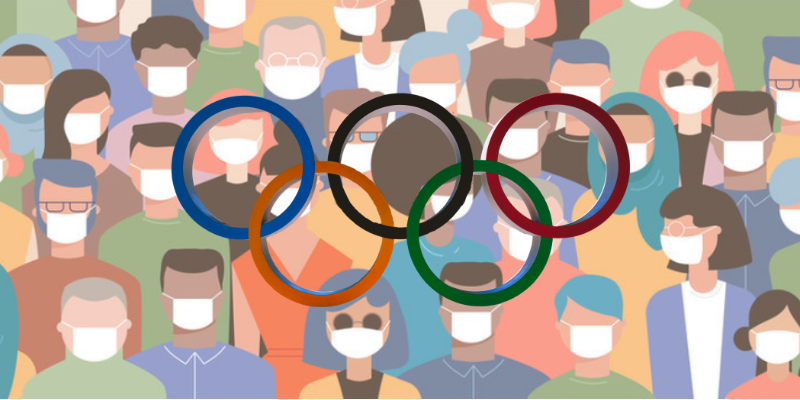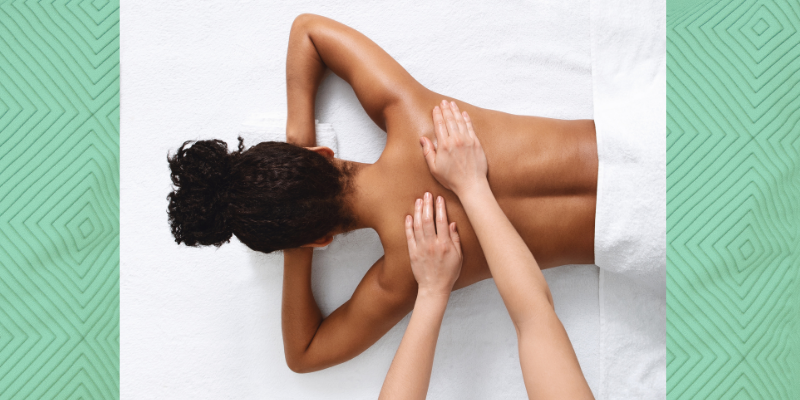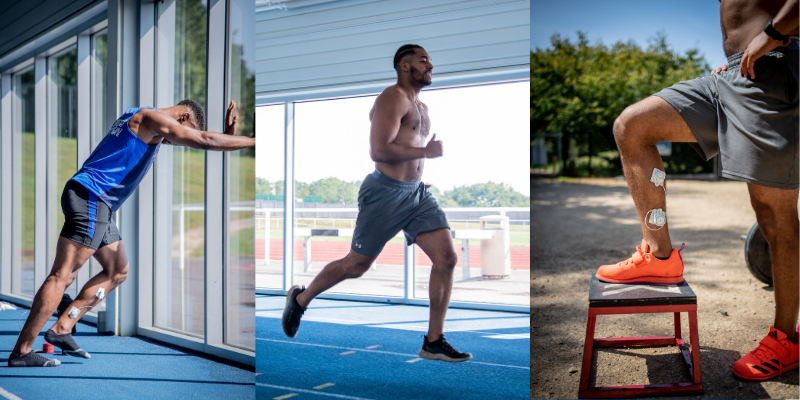When the International Olympic Committee (IOC) announced that the Tokyo 2020 Olympic and Paralympic Summer Games would be postponed for a year, it was a hammer-blow to many athletes across the world who had been working towards an Olympic or Paralympic goal for four years.
Huge disappointment
“I was gutted when it was announced that the Games would be postponed until next year”, says double Paralympian and NuroKor ambassador Olivia Breen.

After securing a bronze medal in long jump at the IPC World Championships in 2019 and winning gold for Wales in long jump at the 2018 Commonwealth Games, Breen was in prime condition for a 2020 Games.
She was very much targeting an individual Paralympic medal, but after taking some time to digest the new boundaries she says: “Although I was really disappointed, I believe it was the right decision for people’s safety. My aim is now a Paralympic medal in 2021.”
A year too far
Although Breen’s feelings are shared by many athletes whose performances were just about to peak for the summer of 2020, Breen is lucky that at just 24 years old, her age is not against her.

This is not the case for many athletes including household names such as four-time Olympic champion Mo Farah who will be 38 by next summer and multiple Olympic medalist Jason Kenny who will be 33 when he competes in track cycling at his fourth Olympics.
For athletes at the tail-end of their careers, 12-months can make a huge difference, and as former World 400m Champion Dai Greene says to The Daily Telegraph: “Once you get past a certain age, you’re going to start to go downwards.”
Greene, who will be 35 next summer, has already said that Tokyo will be his last Olympics, but he is worried about whether his body can keep going for an extra year:
“While I am in good spirits physically and mentally at the moment, there is a small thing at the back of my mind that I don’t know if my body will give up on me at some point. I just hope that in a year’s time I’ll still feel like I do now. There’s always the doubt that it might not be.”

New contenders
For some of the younger athletes, an Olympics in 2021 will mean that their medal chances are boosted. This is the case for young skateboard star Sky Brown, who at just 12-years old looks set to still become Britain’s youngest ever Olympian in 2021 (she will be 13 next summer). With an extra year of practice, she is due to go into the Games as a medal-contender after securing a World Championship medal from 2019 in Sao Paolo.
The same might be said of 22-year old Scottish athlete Gemma Reekie who has quickly risen to fame on the track, consistently setting personal bests in the 800m, and in August beating fellow Scot Laura Muir at an international meet in Trieste, Italy. If her results carry on going the same way, she will be a serious contender in Tokyo next summer.
A blessing in disguise
For several athletes, regardless of their age, a 12-month delay has come as a blessing in disguise, giving them more time to recover from either serious or niggling injuries.
Paralympic table tennis Champion Will Bayley damaged his anterior cruciate knee ligament while on Strictly Come Dancing, so an extra year to recover will make a huge difference to his chances of making and performing in the 2021 Paralympics.
For 22-year old British cyclist and NuroKor ambassador Ellie Dickson, 2020 wasn’t quite the year she thought it was going to be. She explains:
“Ironically 2020 was the year I had been dreaming of since I committed to the dream of the Olympic Games... and all that’s happened is sickness and injury.”

Since the World Championships in February this year, Dickinson has been battling a knee injury and quite soon after, she was diagnosed with appendicitis which saw her endure a stint in hospital.
Healing the body
For Dickinson, a whole extra year to recover and get on top of her performance might well mean a more successful Olympics for her. She is now concentrating on staying on top of her injuries and feels ‘lucky’ she has extra time to train before the Games:
“I have learnt a lot along the way with these setbacks, the main one being there is no point in trying to control the uncontrollable. The only thing I can change is how fast my body can heal.”

“I am consistently using my NuroKor device to help my knee injury. I use it before and after training on my knee. On rest days I will sometimes sit with it for hours. I believe it has had a hugely positive impact on my recovery.”

A gamble?
Another athlete who may benefit from the Olympic delay is diver Ross Haslam, also a NuroKor ambassador. Haslam made the tough decision to have surgery on a shoulder injury which wouldn’t go away.
“I had a year of pain and the frustration of not being able to dive as well as I knew I could. After exploring several different options, surgery became my only choice,” explains Haslam.

“The postponement of the Olympics still seems very surreal for me, and I know that I will be very limited in preparation compared to some of my competitors, however, I believe that if I can start diving again pain-free, I will be much better off for it.”
Just like Dickinson, Haslam is very clear about the key role NuroKor has had to play in his recovery: “I have been using my NuroKor mitouch device since I came out of surgery. First on the MC2 mode to help with inflammation. Then the PNS and NMS modes to help with recovery. It really has helped me on my journey.”

Haslam concludes: “With just over a year to go until Tokyo, I have the hope and belief that I will be ready and will do everything in my power to get back diving, stronger and better than before.”
To hear more from Ross Haslam' about his rehab journey, tune into The BioElectronic Podcast

You can follow the NuroKor ambassadors’ Olympic and Paralympic dreams on Instagram, Olivia Breen, Ellie Dickinson and Ross Haslam
Click here to learn more about how NuroKor aids pain management and recovery



